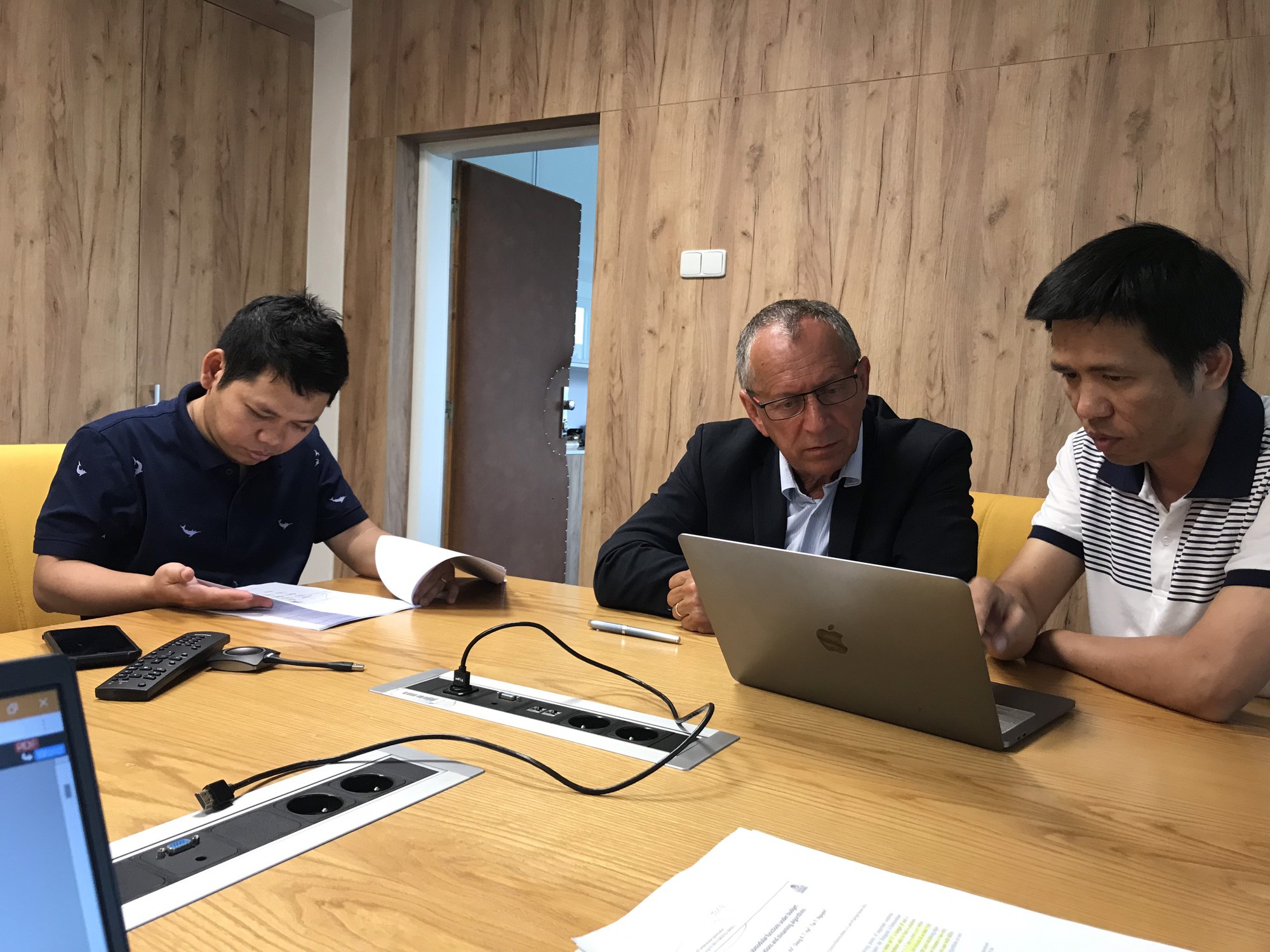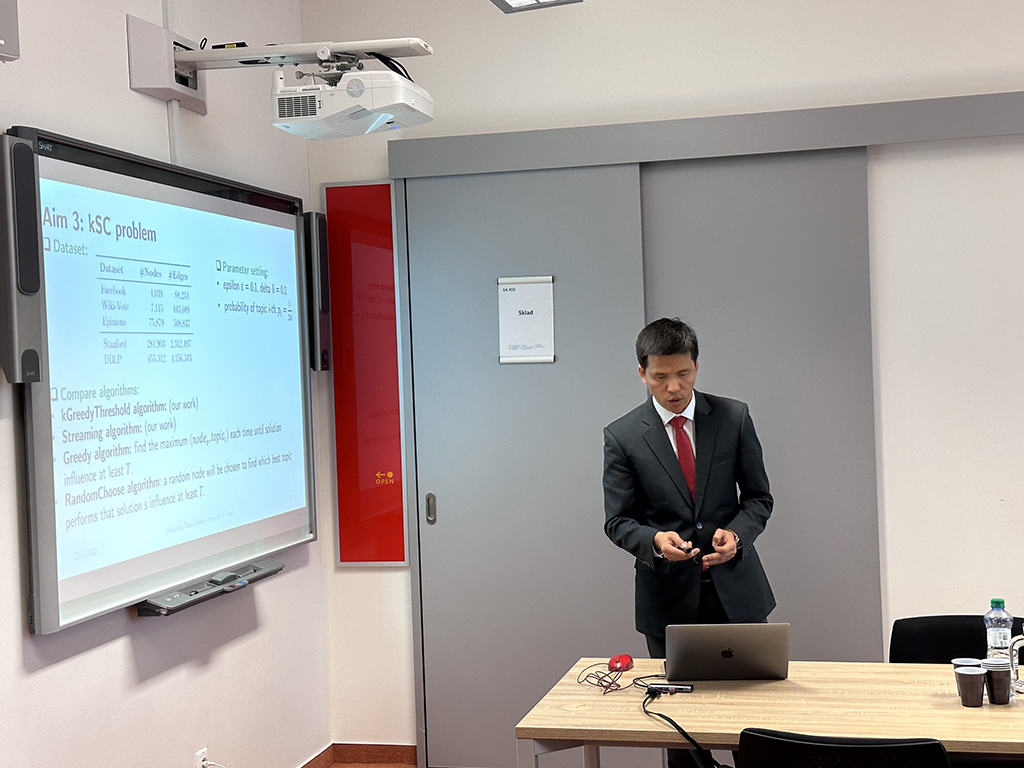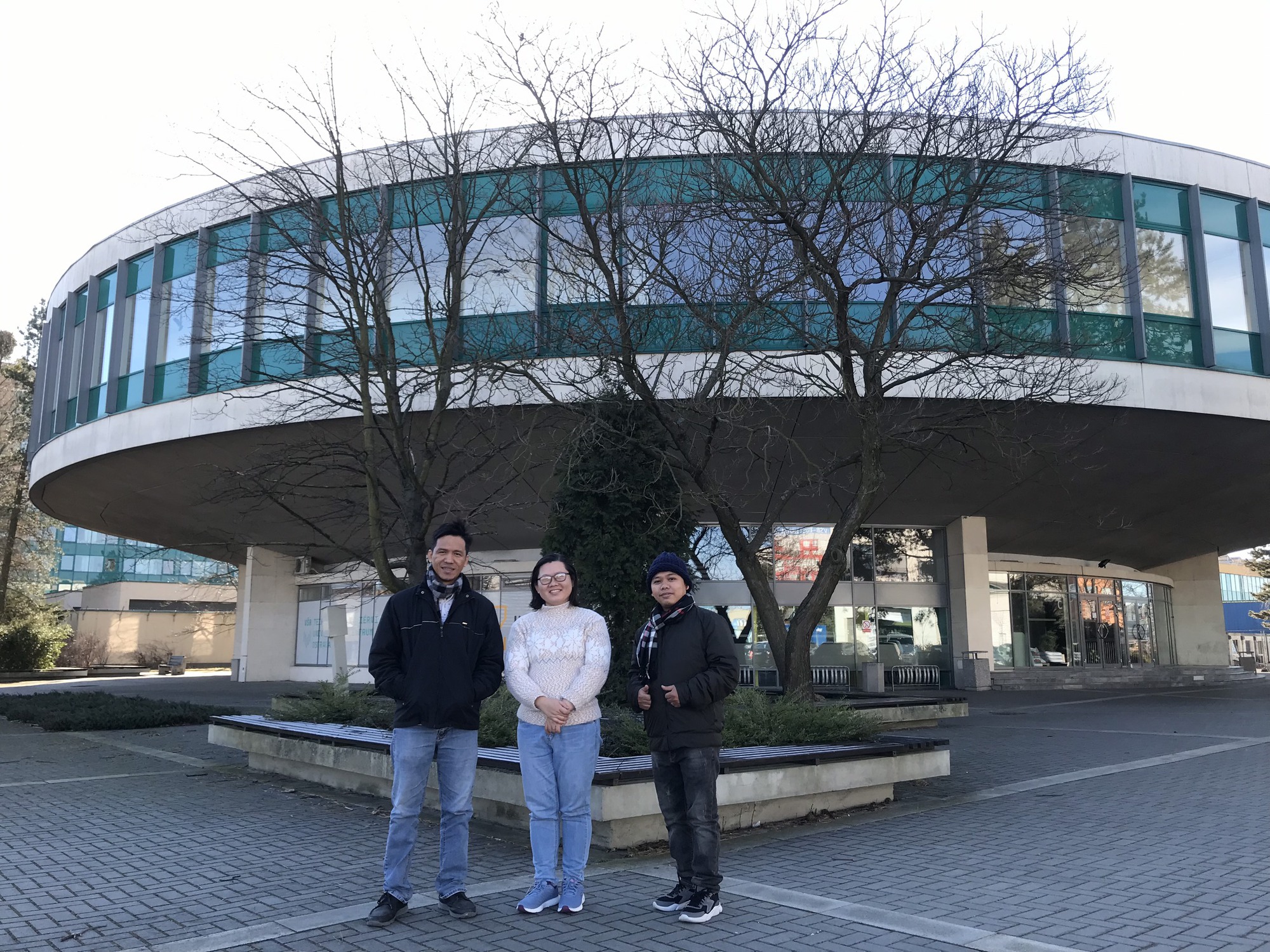THE RATE OF STUDENTS GOING TO STUDY ABROAD UNDER THE PROGRAM ONLY REACHED 32%
Following previous state-funded doctoral training programs for higher education institutions, the Government continued to approve the "Enhancing the Capacity of Lecturers and Administrators in Higher Education Institutions to Meet the Requirements of Fundamental and Comprehensive Educational and Training Reform in the Period 2019-2030" (Project 89) in 2019. The project aims to have approximately 7,300 lecturers trained to doctoral level by 2030. However, currently, the number of lecturers sent by training institutions to participate in this project is very low compared to the assigned target.

Currently, many university lecturers study abroad primarily on scholarships from foreign universities and institutions.
The specific objective of Project 89 is to train approximately 10% of university lecturers to doctoral level; of which 7% will be trained full-time abroad, 3% domestically, and in collaboration with foreign universities. To achieve this goal, within about 10 years, approximately 7,300 lecturers with doctoral degrees and over 300 lecturers in the fields of culture, arts, and physical education and sports with master's degrees need to be trained.
However, according to statistics from the Ministry of Education and Training, the number of university lecturers participating in this project in the last two years has been lower than the set targets. Specifically, in 2022, the total training target was 766 people domestically and 251 abroad, but the actual results only reached 24% domestically and 32% abroad (only 80 people went to study abroad). In 2023, the total training target was 319 people domestically and 202 abroad, but the actual achievement based on the number of people who have gone to study and the reports from the universities is only about 37% domestically and 64% abroad. According to a representative from the Department of Higher Education, the implementation of Project 89 is lagging behind, with universities fulfilling very few of the assigned targets based on the initial registrations or commitments.
There are universities offering doctoral scholarships through partnerships, covering up to 95% of tuition fees.
Based on the university's experience, Associate Professor Dr. Nguyen Xuan Hoan, Chairman of the University Council of Ho Chi Minh City University of Industry and Trade, stated that the university has faculty members who pursue further education using state budget funds under Project 911. The majority of faculty members pursuing doctoral degrees abroad receive diplomatic scholarships through international cooperation with partner universities. This source accounts for up to 95% of the total number of overseas study opportunities for faculty members for several reasons. Specifically, the university incurs no training costs, students do not have to pay tuition fees and also receive scholarships and living expenses, while partner universities also benefit through scientific research projects and international cooperation between the two universities.
"Meanwhile, studying with state-funded scholarships comes with too many restrictions and limited choices. Each country limits the number of scholarships, while teachers have specific preferences regarding the country, university, and even supervising professor. Therefore, the limited choice of study location is the main bottleneck when participating in state-funded programs," Associate Professor Hoan said.

Dr. Pham Nguyen Huy Phuong, Deputy Head of the Administrative and Organizational Department of Ho Chi Minh City University of Industry and Trade, defended his doctoral thesis at Ostrava University of Technology (Czech Republic), under a diplomatic scholarship from the university.
Preliminary statistics from Ho Chi Minh City University of Technology also show that in 2022, out of 30-40 people studying abroad, only about 10% went with state budget funding. Among them, Project 89 currently has a few participants. "Currently, through the university's partnerships, faculty members can easily obtain scholarships to study at foreign universities," said Associate Professor Tran Thien Phuc, Vice Rector of the university.
Associate Professor Dr. Nguyen Hoang Tu Anh, Rector of the Ho Chi Minh City University of Information Technology, said that currently, most of the university's lecturers study abroad on scholarships from universities and institutes because the procedures are simple, the scholarship amounts are high, and there are no regulations requiring them to return to work for the university immediately after graduation. A trend among many lecturers after graduating from doctoral programs is to continue applying for postdoctoral scholarships.
Associate Professor Dr. Nguyen Xuan Hoan, Chairman of the University Council of Ho Chi Minh City University of Industry and Trade.
WHICH SOLUTION IS REALLY EFFECTIVE?
Although they don't account for a large proportion, according to representatives from universities, state-funded study abroad programs still play an important role in improving the qualifications of faculty members at educational institutions.
Having participated in the first cohort of Project 322, Associate Professor Dr. Tran Thien Phuc observed: "Although there are many sources of scholarships for studying abroad, state investment plays a crucial role. This is a very good opportunity for teachers to participate in training to improve their qualifications, and most of those who go to study return to work."
For the program to be implemented effectively, Associate Professor Dr. Phuc believes the key lies in how to ensure the return of those who attend the training. Legally, the direct management agency must closely and regularly supervise those sent for training. Dr. Phuc believes that the Ministry of Education and Training assigning the task to the workplace of the trainees is reasonable. After each semester, teachers attending training must submit progress reports to their schools, allowing the schools to immediately identify any interruptions in their studies.
"Furthermore, the necessary commitment is also psychological, specifically, greater attention from the university to those sent for training. Most importantly, it is necessary to select candidates with at least 5-7 years of work experience at the university to foster greater loyalty to their workplace," Associate Professor Phuc suggested.
Associate Professor Dr. Nguyen Xuan Hoan stated: "Drawing on the experience of many schools and many teachers, the most important factor in ensuring that students feel secure in completing their studies and retaining them upon their return to the school is the provision of a good support system for students."

Overseas scholarships sought out independently by universities and faculty members are often high-level and have few binding conditions.
Sharing the school's approach, Associate Professor Hoan said that regardless of the program they pursue, even those funded by the state budget, teachers receive their full salary as if they were working at the school throughout their studies. "Going to doctoral school is considered a duty for teachers. Therefore, whether teachers are studying or working at the school, they receive 100% of their salary and the same rewards. Thanks to this, teachers feel secure in pursuing further education and are reluctant to leave the school for other jobs upon their return," Professor Hoan said.
According to Mr. Hoan, in addition to paying income, the school also has "strict" commitments for those sent to study. For example, after studying, they must work for the school for a minimum of 5 years, report their academic progress each semester, and their income will be cut if they fail to do so. Furthermore, during holidays and festivals, students are responsible for returning to the school to participate in activities such as seminars or online teaching…
Further suggestions regarding this policy were made, Associate Professor Dr. Nguyen Hoang Tu Anh suggested simplifying procedures while improving the process to better monitor students. In addition, he emphasized the need for attention from the Vietnamese Consulate in the host country to monitor and support students when they encounter difficulties. "Providing scholarships and living expenses adequately and on time is also essential. At times, delays in transferring funds to students cause difficulties in their daily lives," Associate Professor Anh added.
Source link




![[Photo] General Secretary To Lam meets with representatives of retired and former military generals.](https://vphoto.vietnam.vn/thumb/1200x675/vietnam/resource/IMAGE/2026/02/10/1770724375943_a1-bnd-6680-1023-jpg.webp)

![[Photo] General Secretary To Lam meets with members of the subcommittees preparing for the 14th Party Congress.](https://vphoto.vietnam.vn/thumb/1200x675/vietnam/resource/IMAGE/2026/02/10/1770721375846_a1-anh-bnd-6254-482-jpg.webp)















































































































Comment (0)